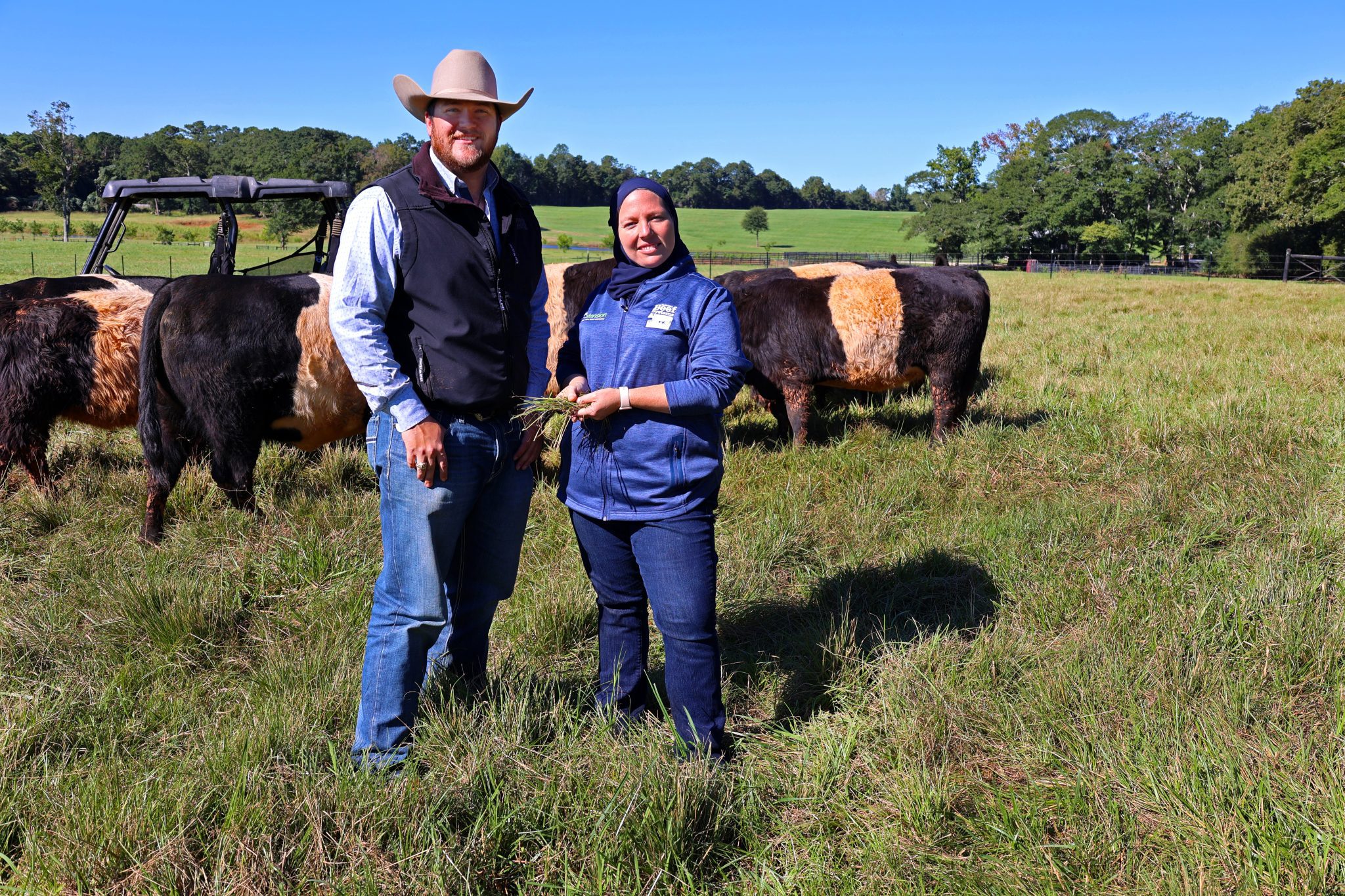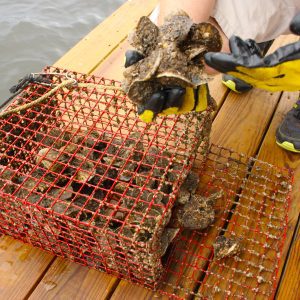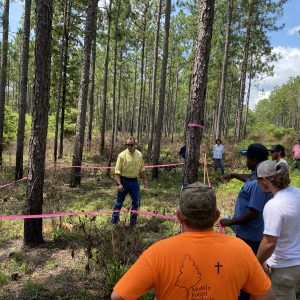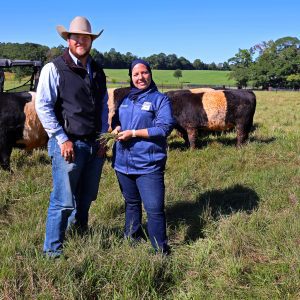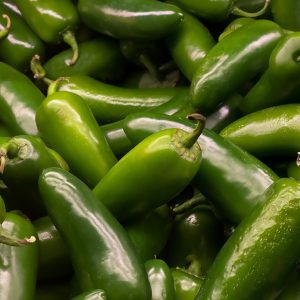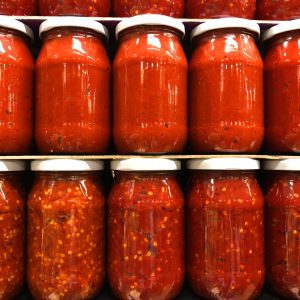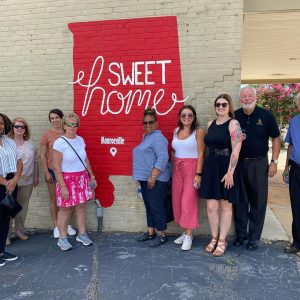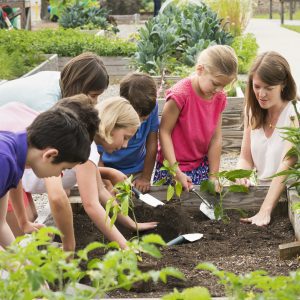About Us

Who We Are
The Alabama Cooperative Extension System is the outreach organization for the land grant mission of Auburn University and Alabama A&M University. Our educational programs grow from these two land grant university campuses to serve the people of Alabama and are funded by county, state, and federal budgets. We deliver science-based educational programs that enable people to improve their quality of life and economic well-being. Our information and programs are available online or in person in all 67 county Extension offices and at teaching sites throughout Alabama communities.
Who We Serve
Alabama Extension is an equal opportunity educator and employer. Everyone is welcome to participate in our programs. We foster economic growth, improve lives, and support future generations by offering science-based programs in agriculture, forestry, wildlife, and natural resources; human sciences; economic and community development; 4-H and youth development; and urban programs.
Our Value to Alabama
Our value is truth. It is the security of knowing that Extension information has been tested and can be trusted. Extension programs are based on proven information and methods, with new knowledge growing from scientific exploration at Auburn University, Alabama A&M University, and a network of land grant universities across the nation. Quite simply, we don’t guess. Science is the foundation of Extension programs. The commitment to truth is the core of our mission to help Alabama find the right answers to tough questions and new opportunities. Following is an overview of how we have helped Alabama in 2021.
AGRICULTURE, FORESTRY, AND NATURAL RESOURCES
Oyster Gardening on the Gulf Coast. Oyster gardening contributes to reef site restoration, increased ecosystem services, and increased value of the restored acreage. Oyster growers learn about the economics of oyster production and the value of oyster reef restoration. In 2021, producers grew more than 60,000 oysters with a restorative potential of 2.92 acres and an economic impact of $69,033. Gardeners in Alabama gave 1,230 nonstudent volunteer hours valued at $35,104 for a total Alabama return of $104,137 and an ROI of 8.68:1 for the 2021 season.
Improving Peach Production and Marketing in Alabama. Global climate change has had a significant impact on the peach industry affecting the number of chill hours necessary for dormancy break, late-season frosts, increased occurrence of soilborne and foliar diseases, and economically important insect pests. These factors have not only affected production but also have created challenges for marketing of the crop. This project developed Armillaria root rot (ARR) mitigating strategies and overall varietal performance to assist growers in decision-making.
Alabama Professional Logging Manager Training. Alabama has 23 million acres of timberland and ranks third in largest commercial forestland in the United States. The Alabama Professional Logging Manager (PLM) program provides loggers and foresters the needed training to complete certification. Results: the 48 events related to this project—workshops, webinars, and meetings—accounted for 1,485 participants. PLM initial efforts consisted of four trainings for 90 new loggers with 42 Alabama counties being represented. Seventeen CFE workshops had a total of 2,435 hours awarded to loggers and foresters (487 participants). Twelve on-demand webinars resulted in 144 CFE hours (122 participants).
Forage Focus—Growing Grass, Growing Profits. Forage crops represent the largest (by acreage) commodity in Alabama. In 2021, the Forage Basics online course was released. This is a first-of-its kind course in the Southeast. Since its release in September, 255 participants have enrolled in the course. Participants have 180 days to complete the course, so accurate completion rates cannot be calculated at this time. The Alabama Grazing Academy helped producers increase their knowledge of precision soil fertility, grazing management, and weed control. The economic impact of the Grazing Academy was $56,342 with an average of $2,167 impact per farm.
Sustainable Livestock Systems. Livestock production system sustainability is an important component of providing high-quality, animal-based protein for US consumers while ensuring the renewability of natural resources. Since the Beef Systems Short Course began in fall 2019, 207 participants across the state have enrolled (n = 69 in 2021), representing 28,544 acres and 14,212 head of cattle reached by this program.
Top management practices that producers planned to implement included improved forage management, establishment of a calving season, record keeping, and proper identification of livestock. Half of the program participants reported that this was their first time attending an Extension program, demonstrating the reach to new and beginning clientele. The total estimated economic impact of the program is $537,950, based on estimated savings reported per operation.
Food Safety Training to Sell Cottage Foods. The cost of starting a business can be expensive, but the Alabama Cottage Food Law in 2014 created a path for Alabamians to produce food products in their home without the usual costly overhead. In 2021, 800 individuals became certified cottage food producers and received five-year certification. As a result of this certification, entrepreneurs can make up to $20,000 in gross sales each year.
HUMAN SCIENCES
Escape Vapes: Youth Prevention Program. This effort is designed for adolescents ages 11 through 18 to prevent their use of electronic cigarettes, pods, or mods. There has been a staggering increase among middle and high school students using e-cigarettes. These high-dose nicotine products are highly addictive gateways to traditional cigarettes and other drugs and alcohol. E-cigarettes also cause serious health issues in addition to nicotine addiction that has long-term impacts. Program participants learn about nicotine addiction, the components and nicotine content of JUUL and pod-based systems, and the marketing strategies used to manipulate them into vaping.
Auburn University Supplemental Nutrition Assistance Program Education (SNAP). The Alabama adult obesity rate is 39%, fruit and vegetable consumption is 5.9%, and physical activity participation is 17.6%. For Alabama youth, 21.7% are obese, fruit and vegetable consumption is 6.8%, and physical activity participation is 25.2%. Alabama’s SNAP nutrition education and obesity prevention services are a combination of direct education; policy, systems, and environmental changes; and social marketing delivered through multiple venues. Through nutrition education, participants increase fruit, vegetable, and water consumption, increase physical activity, and decrease sugar-sweetened beverage consumption.
Auburn University Expanded Food and Nutrition Education Program (EFNEP). Negative health outcomes disproportionately affect limited-resource families, who have a high prevalence of diet-related disease, lack of access to affordable, healthy foods, and spend a higher percentage of their income on food. In Alabama, 21.8% of children ages 10 to 17 are considered obese, placing Alabama in the top five states in childhood obesity. Moreover, Alabama’s infant mortality rate is among the highest in the nation, with 449 babies dying before their first birthday in 2019. Food prices are increasing and represent a disproportionate burden on low-income families. Of EFNEP families, 84% receive at least one type of public assistance. EFNEP participants have improved their budget and food planning skills, the quality of their diets, and their food safety practices. To support new families, the Alabama Extension office in Randolph County organized a Drive-Thru Baby Shower and collected more than $5,800 in monetary and in-kind donations for the Today’s Mom program. It is different from other community baby showers in that AU EFNEP collects all donations, then meets families where they are to provide not only education but also much-needed resources. This is a great benefit to participants because they are less likely to have a strong support network or reliable transportation. By bringing resources directly to families, AU EFNEP increases the likelihood of successful outcomes and improved health.
Skills to Pay the Bills. This statewide career development program is for in-school and out-of- school youth between 14 and 19 years of age. Young people develop soft skills to navigate school, work, and their personal lives. The program provides skills to be successful in the workforce, supporting employability in Alabama across four topic areas: communication skills, teamwork, problem-solving and critical thinking, enthusiasm and attitude. Agents conducted 109 activities and reached 1,308 participants at various high schools and learning academies in six counties.
Money Smart for Adults. Money Smart for Adults is a statewide career development project that helps adults manage their personal finances. It teaches how to create a monthly spending plan, understand credit reports, improve credit, reduce debt, and stop identity theft.
The program reached 4,069 participants across 54 counties. 12.6% of participants planned to use no more than 30% of available credit, 8% will work to decrease debt levels, and 11% will implement monthly expense tracking.
ALProHealth: CDC High Obesity Program. ALProHealth is an obesity prevention and reduction initiative implemented in thirteen Alabama counties with an adult obesity prevalence of 40% or greater. These counties include Barbour, Bullock, Conecuh, Dallas, Escambia, Greene, Lowndes, Macon, Marengo, Monroe, Perry, Sumter, and Wilcox. In 2020, Alabama had the third-highest adult obesity rate (39%) in the United States. ALProHealth addresses community factors of the food environment, such as access to affordable healthy foods, and the physical activity environment, such as access to opportunities for safe and affordable physical activity. Since 2018, ALProHealth has leveraged an additional $533,204 to contribute to community activities. During FY 2021, leveraged dollars totaled $175,892.
ALABAMA 4-H
Rural Delivery of Alabama 4-H. Rural communities are shrinking in Alabama. In some counties, the viability of public school systems is being questioned. This has the real potential to create educational deserts and severely limit development opportunities youth need to make critical life decisions. Alabama 4-H serves youth 9 through 18, and Cloverbuds is for kindergarten through third grade. A total of 40,760 young people in the 58 rural counties participated in 4-H last year through 7,969 educational activities.
4-H Grows Youth Gardening. The American population is often disconnected from food production, but there has been a recent resurgence in farm-to-table interests and cooking. The 4-H Grows Program embraces this renewed focus by providing youth with a variety of gardening projects. This program engages young people and, indirectly, their families in growing healthy vegetables for their family meals. In 2021, 2,500 young people participated in 4-H Grows. Of this number, 32% were minorities and 55% were female. In addition to growing their own food, participants offered donations to food pantries and learned what it takes to be a food entrepreneur.
Natural Resources and Environmental Education. The 4-H Natural Resources and Environmental Education efforts include youth, teachers, volunteers, and other youth development professionals; land managers; residents; and consumers of goods and resources. Natural resources are state treasures. Low environmental literacy and decreased time spent outdoors contribute to a lack of knowledge of our resources and the role that individuals may play. This program improves environmental literacy and helps people learn how to apply critical thinking skills to natural resource management. Alabama Extension reached 29,036 participants. This included certifying 37 youth as water chemistry monitors; collecting 53 citizen science records; paddling 77 miles of Alabama freshwater in 11 different bodies of water; and certifying 9 kayaking instructors, 15 fishing and aquatic education instructors, 15 Aquatic WILD educators, and 25 Project WILD educators.
4-H Animal Programs. Targeting 4-H members and volunteers, these programs teach young people about animals and themselves. 4-H members learn how to raise animals and learn the science behind animal husbandry. The 4-H Animal Program includes Chick Chain, Beef and Swine Expo, Pig Squeal, Livestock Weekend, Livestock Judging Contest, State 4-H Horse Show, Horse Active Education Day, Poultry Week, Golden Egg Contest, Rabbit Project, State Fur and Feathers Show, Dairy Bowl, Dairy Judging Contest, Dairy Project, and Dairy Poster Contest.
Computer Science Pathway. Alabama youth, like many others, had been in front of their computer screens for an inordinate amount of time during the 2020–2021 school year because of the COVID-19 pandemic. Studies show that youth and teens have had a tough time coping emotionally with the pandemic, remote schooling, and an absence of social activities. However, computer science education is a much-needed skill that many school systems are challenged to bring to their students. Alabama 4-H engaged more than 1,100 young people in computer learning opportunities in clubs, after-school partnerships, school enrichment programs, and other learning opportunities.
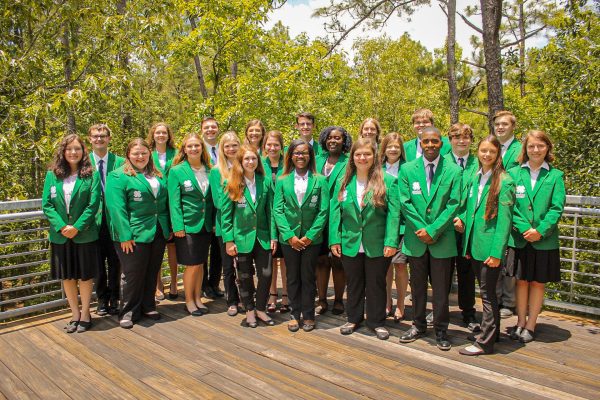 Volunteerism. Volunteers are the heart of the 4-H program. In Alabama, 3,105 people offer their time to manage 3,387 4-H clubs, 780 community clubs, 2,496 in-school clubs, 110 after-school clubs, and 14 military clubs. The economic impact of their volunteerism has reached $2.3 million. More importantly, these generous volunteers serve as role models for young people. 4-H members are four times more likely to make contributions to their communities; two times more likely to be civically active; two times more likely to participate in science programs during out-of-school time; two times more likely to make healthier choices; two times more likely by grade 10 and three times more likely by grade 12 to take part in science programs compared to girls in other out-of-school activities.
Volunteerism. Volunteers are the heart of the 4-H program. In Alabama, 3,105 people offer their time to manage 3,387 4-H clubs, 780 community clubs, 2,496 in-school clubs, 110 after-school clubs, and 14 military clubs. The economic impact of their volunteerism has reached $2.3 million. More importantly, these generous volunteers serve as role models for young people. 4-H members are four times more likely to make contributions to their communities; two times more likely to be civically active; two times more likely to participate in science programs during out-of-school time; two times more likely to make healthier choices; two times more likely by grade 10 and three times more likely by grade 12 to take part in science programs compared to girls in other out-of-school activities.
FY2022 Budget
- State Appropriations $44,323,695 *
- Federal Appropriations $9,486,099
- County Appropriations $2,303,795
- Contracts/Grants $9,921,643
- Indirect Cost Recovery $1,000,000
- Sales & Services $309,950
- Investment Income $210,000
- Gifts & Private Support $75,000
FY 2022 Total Budget $67,630,182
*$38,239,310 Alabama Extension Division 4 State Appropriation from the Education Trust Fund $6,084,385 Alabama Extension Central Allocation from Auburn University State Appropriation
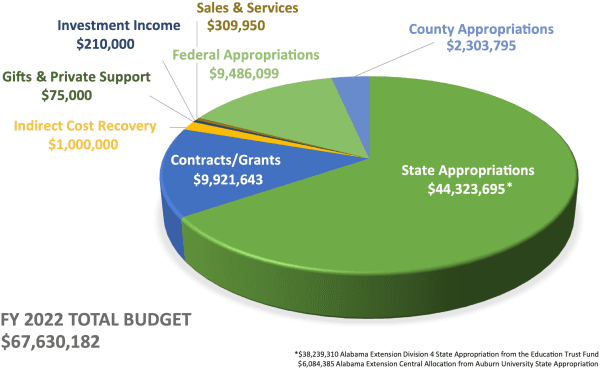
New April 2022, 2021 Annual Report: Alabama Cooperative Extension System, ACES-2659

